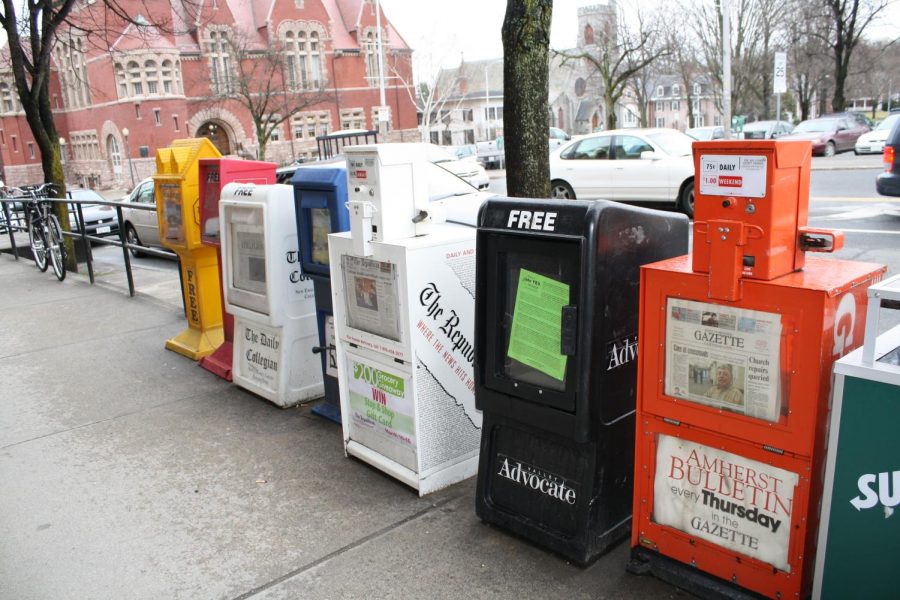It is a misconception that all free journalism is bad journalism. As it turns out, there are many well-respected news outlets that have the same quality as their pay-to-read counterparts.
As classes resume, let’s take a look at four examples that will make you better-informed, and better off, this semester.
The New York Times
It’s not exactly a shocker that we consider The New York Timesquality journalism, but what should come as a surprise is that you can have it all for free.
Yes, really. An all-access subscription to the Times costs $3.13 per week, but all UMass students have free access to everything it has to offer. That includes not just hard news, but also the literary supplement, opinion pieces and just about everything else the biggest newspaper in the country feels like producing.
How do you access your subscription? It’s easy; just sign up for the Academic Pass following the instructions described here. Once you activate your account, you can log on with your University credentials.
The Guardian
In a message requesting donations that appears at the end of every article, the newspaper declares that, “unlike many others, we haven’t put up a paywall because we want to keep our journalism as open as we can.” Kudos to them.
The Guardian is one of the biggest daily newspapers in the United Kingdom and has been for almost 200 years. It holds four British Press Award nominations and is known for investigating the Panama Papers and being the first to publish Edward Snowden’s evidence of the controversial PRISM surveillance program. In terms of its political alignment, most consider it center-left.
While not well-known in the United States, The Guardian offers commendable coverage of American domestic news. Interesting recent articles include an examination of the Republican primary in John McCain’s old Senate district, and a look at the race between Texas senator Ted Cruz and his Democratic challenger, Beto O’Rourke.
If you’re looking for something outside of your usual interests, reading the Guardian can also be a great way to learn about British and European politics; obviously, there are few better ways to acquaint oneself with the politics of another country than by reading their newspapers.
The BBC
There’s nothing quite like the BBC when it comes to international reporting.
A publicly-funded broadcaster (similar to PBS or NPR in the United States), this news organization manages to achieve high fidelity journalism without the need to establish a paid subscription service.
In recent years, it has seen controversy for its decision to introduce advertising banners, which some have argued has led to a drop in quality and credibility. Nonetheless, it remains one of the best ways to stay in touch with the broad strokes of international events.
To get you started, take a look at their work on the Rohingya crisis and the ongoing civil war in Yemen.
Your local newspaper!
While we may seem to be living in a moment when the focus is increasingly on national politics, we must not forget that sometimes the most important news is local, at least when it comes to our day-to-day lives. As Rasmus Kleis Nielsen, professor at the Reuters Institute for the Study of Journalism, writes, “[local news] provides information about local public affairs, it holds local elites at least somewhat accountable, it provides a forum for discussion,and it ties communities together.”
Therefore, there’s little doubt: a functional local press is one of the most important institutions of a functional community.
Papers in the Pioneer Valley include the Daily Hampshire Gazette, the Valley Advocate, The Republican and the Greenfield Recorder. Check them out! You won’t be disappointed.
Trent Babington can be reached at [email protected].




















